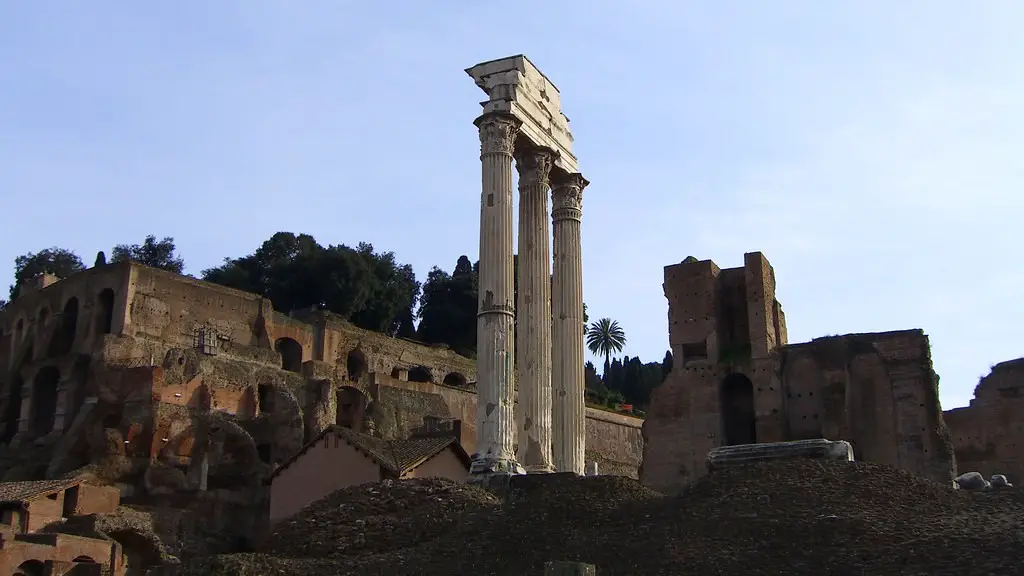Used as a Form of Documentation
Romans used writing as a form of documentation mainly for establishing legal claims over land, ownership of property, taxation, and law. They wrote down laws, deeds, and contracts. Official records, such as birth and death certificates, or witnesses to events, were also written down for official purposes. Regardless of the purpose, writing served an essential role in the ancient Roman world and, without it, things may have been somewhat chaotic.
Used in Education
Roman education put a lot of emphasis on the ability to write. Since Latin was the official language of Rome at the time, it was deemed essential for Roman students to have the ability to write Latin. In addition, the legal system was grounded in written records and having a good education meant that you had a better chance of understanding this written law. Writing also had an important role in Roman religious life and culture. Poetry, manuscripts and plays were all written as entertainment and formed a large part of the Greco-Roman culture.
Used in Art and Architecture
Ancient Roman art used writing to an impressive degree. Famous monuments, such as the Colosseum and Pantheon, were adorned with inscriptions and texts. Many of these inscriptions told the history of the building or the people who built it. Writing was also used in mosaics, which were designs created from small coloured tiles. These contained messages and images which tell us much about the culture of the time.
Used in Everyday Life
Roman writing was not just limited to official or artistic contexts. Ancient Romans also wrote for everyday life. Accounts of news and events, letters to friends and family, and records of purchases, were all jotted down. Writing was also used to record recipes, diaries and logs. All of these mundane writings contribute to our understanding of the daily lives of the ancient Romans.
Inscription
Inscription was an important form of communication in the Roman world and was used to convey a variety of important messages. Inscriptions on official buildings, monuments, coins and medals were used to express the official opinions of the ruling authorities. They could also be used in a more personal context and could be inscribed on rings, bracelets and other jewellery with messages expressing love, religious beliefs or even declarations of loyalty. Inscriptions were also used to mark boundaries, such as country borders or military encampments.
Etiquette and Courtesy
Writing was essential for the transmission of etiquette, courtesy and politeness. The Romans were highly skilled in the art of rhetoric, which they used to praiseand promote their own class. They used writing to make requests, offer apologies, and congratulate. This was a way of expressing social graces in a polite and courteous manner.
Part of the Culture
In general, writing was an important part of Roman culture. It was necessary for communication between different classes, religions, and geographic areas. Even more so, writing was necessary for literature and art. Without writing, the works of Virgil, Horace, Ovid, Lucretius, and Tacitus, just to name a few, would not exist. In fact, it can be said that the Roman Empire was only possible because of writing, as it was a way of bridging the gaps between individuals, groups and regions.
The Impact of Writing
The Roman system of writing spread all over Europe, leading to an increase in literacy and a better understanding of the written language. It is also credited with influencing the development of Latin, which is related to all modern Romance languages, including Spanish, French, Italian and Portuguese. Furthermore, the Roman system of writing was based around the use of lower case letters, which is still used today.
Conclusion
In conclusion, writing was an essential part of Roman life, impacting their laws, education, culture, art, and architecture. Writing allowed the Romans to record their achievements, laws and culture, and enabled them to transmit their knowledge to future generations. It can be said that without writing, the Roman Empire would not have been possible, and the impact of the Romans on literature and culture, both in Europe and all over the world, would never have been achieved.


